- Home
- Margaret Atwood
Stone Mattress Page 2
Stone Mattress Read online
Page 2
Milzreth has the face of a former boss of hers when she worked as a waitress. He was a rump-slapper. She wonders if he ever read the series.
Now she’s reached the end of the first block. This outing was maybe not such a good idea: her face is streaming wet, her hands are freezing, and meltwater is dribbling down her neck. But she’s underway now, she needs to see it through. She breathes in the cold air; pellets of blown ice whip against her face. The wind’s getting up, as the TV said it would. Nonetheless there’s something brisk about being out in the storm, something energizing: it whisks away the cobwebs, it makes you inhale.
The corner store is open 24/7, a fact that she and Ewan have appreciated ever since they moved to this area twenty years ago. There are no sacks of ice melt stacked outside where they usually are, however. She goes inside, trundling her two-wheeled shopping bag.
“Is there any salt left?” she asks the woman behind the counter. It’s someone new. Constance has never seen her before; there’s a high turnover here. Ewan used to say the place had to be a money-laundering joint because they couldn’t possibly be making a profit, considering the low traffic and the state of their lettuces.
“No, dear,” the woman says. “There was a run on it earlier. Be prepared, I guess is what they had in mind.” The implication is that Constance has failed to be prepared, which in fact is true. It’s a lifelong failing: she has never been prepared. But how can you have a sense of wonder if you’re prepared for everything? Prepared for the sunset. Prepared for the moonrise. Prepared for the ice storm. What a flat existence that would be.
“Oh,” says Constance. “No salt. Bad luck for me.”
“You shouldn’t be out in this, dear,” the woman says. “It’s treacherous!” Although she has dyed red hair shaved up the back of her neck in an edgy style, she’s only about ten years younger than Constance by the look of her, and quite a lot fatter. At least I don’t wheeze, thinks Constance. Still, she likes being called dear. She was called that when very much younger, then not called it for a long time. Now it’s a word she hears frequently.
“It’s all right,” she says. “I only live a couple of blocks away.”
“Couple of blocks is a long way to go in this weather,” says the woman, who despite her age has a tattoo peeking up above her collar. It looks like a dragon, or a version of one. Spikes, horns, bulgy eyes. “You could freeze your ass off.”
Constance agrees with her, and asks if she can park her shopping bag and umbrella beside the counter. Then she wanders up and down the aisles, pushing a wire store cart. There are no other customers, though in one aisle she encounters a weedy young man transferring cans of tomato juice to a shelf. She picks up one of the barbecued chickens that revolve on spits inside a glass case, day in and day out like a vision from the Inferno, and a package of frozen peas.
“Kitty litter,” says Ewan’s voice. Is this a comment on her purchases? He disapproved of those chickens – he said they were probably full of chemicals – though he’d eat one readily enough if she brought it home, back in his eating days.
“What do you mean?” she says. “We don’t have a cat any more.” She’s discovered that she has to talk out loud to Ewan because most of the time he can’t read her mind. Though sometimes he can. His powers are intermittent.
Ewan doesn’t expand – he’s such a tease, he often makes her figure out the answers by herself – and then it comes to her: the kitty litter is for the front steps, instead of salt. It won’t work as well, it won’t melt anything, but at least it will provide some traction. She wrestles a bag of the stuff into the cart and adds two candles and a box of wooden matches. There. She’s prepared.
Back at the counter she exchanges pleasantries with the woman about the excellence of the chicken – it’s an item the woman likes herself, because who can be bothered with cooking when there’s only one, or even only two – and stows her purchases in her wheeled shopper, resisting the temptation to get into a conversation about the dragon tattoo. This topic might swiftly veer into complexities, as she’s learned from experience over the years. There are dragons in Alphinland, and they have numerous fans with many bright ideas they are eager to share with Constance. How she ought to have done the dragons differently. How they would do the dragons if it was them. Subspecies of dragons. Errors she has made about the care and feeding of dragons, and so on. It’s astonishing how folks can get so worked up over something that doesn’t exist.
Has the woman overheard her talking to Ewan? Most likely, and most likely it didn’t bother her. Any store that’s open 24/7 must get its share of people who talk to invisible companions. In Alphinland, such behaviour would call for a different interpretation: some of its inhabitants have spirit familiars.
“Where exactly do you live, dear?” the woman calls after her when Constance is halfway out the door. “I could text a friend, get you a walk home.” What sort of friend? Maybe she’s a biker’s girl, thinks Constance. Maybe she’s younger than Constance thought; maybe she’s just very weathered.
Constance pretends she didn’t hear. It could be a ruse, and next thing you know there will be a gang member bent on home invasion standing outside the door with the duct tape ready in his pocket. They say their car has broken down and can they use your phone, and out of the goodness of your heart you let them in, and before you know it you’re duct-taped to the banister and they’re inserting push-pins under your fingernails to make you cough up your passwords. Constance is well informed about that sort of thing: she doesn’t watch the television news for nothing.
The trail of ashes is no use any more – it’s iced over, she can’t even see it – and the wind is stronger. Should she open the kitty litter bag right here in mid-journey? No, she’ll need a knife, or some scissors; although there’s usually a pull string. She peers inside the shopper with the flashlight, but the battery must be low because it’s too dim in there to see. She could get chilled to the bone struggling with such a bag; better to make a dash for it. Though dash is hardly the word.
The ice seems twice as thick as when she started out. The bushes in the front lawn look like fountains, their luminous foliage cascading gracefully to the ground. Here and there a broken tree branch partially blocks the road. Once she’s reached her house, Constance leaves the shopper outside on the walk and hauls herself up the slippery steps by clinging to the railing. Happily the porch light is shining, though she can’t remember turning it on. She wrestles with the key and the lock, opens the door, and tramps through to the kitchen, shedding water. Then, kitchen scissors in hand, she retraces her route, descends the steps to the red shopper, cuts open the kitty litter bag, and spreads lavishly.
There. Wheeled shopper up the steps, bump bump bump, and into the house. Door locked behind her. Drenched coat off, soaking wet hat and mitts set to steam on the radiator, boots parked in the hall. “Mission accomplished,” she says in case Ewan is listening. She wants him to know she got back safely; he might worry otherwise. They’d always left notes for each other, or else messages on the answering machine, back before all the digital gadgets. In her more extreme and lonely moments she’s thought of leaving messages on the phone service for Ewan. Maybe he could listen to them through electric particles or magnetic fields, or whatever it is he’s using to throw his voice through the airwaves.
But this isn’t a lonely moment. It’s a better moment: she’s feeling pleased with herself for carrying out the salt mission. She’s hungry too. She hasn’t been this hungry ever since Ewan has failed to be present at meals: eating alone has been too dispiriting. Now, however, she tears off pieces of the broiled chicken with her fingers and wolfs them down. This is what people do in Alphinland when they’ve been rescued from something – dungeons, moors, iron cages, drifting boats: they eat with their hands. Only the very upper classes have what you’d call cutlery, though just about everyone has a knife, unless they happen to be a talking animal. She licks her fingers, wipes them on the dishtowel. There ought to be pa
per towels but there aren’t.
There’s still some milk, so she gulps it down right out of the carton, spilling hardly any. She’ll make herself a hot drink later. She’s in a hurry to get back to Alphinland because of the trail of ashes. She wants to decipher it, she wants to unravel it, she wants to follow it. She wants to see where it will lead.
Alphinland currently lives on her computer. For many years it unfolded in the attic, which she’d converted to a workspace of sorts for herself once Alphinland had made enough money to pay for the renovation. But even with the new floor and the window they’d punched through, and the air conditioning and the ceiling fan, the attic was small and stuffy, as the top floors of these old brick Victorians are. So after a while – after the boys were in high school – Alphinland had migrated to the kitchen table, where it unscrolled for several years on an electric typewriter – once considered the height of innovation, now obsolete. The computer was its next location, and not without its hazards – things could disappear from it in an infuriating manner – but they’ve improved the computers over time and she’s become used to hers now. She moved it into Ewan’s study after he was no longer in there in visible form.
She doesn’t say “after his death,” even to herself. She doesn’t use the D-word about him at all. He might overhear it and be hurt or offended, or perhaps confused, or even angry. It’s one of her not-fully-formulated beliefs that Ewan doesn’t realize that he’s dead.
She sits at Ewan’s desk, swathed in Ewan’s black plush bathrobe. Black plush bathrobes for men were cutting edge, when? The ’90s? She’d bought this bathrobe herself, as a Christmas present. Ewan always resisted her attempts to make him cutting edge, not that those attempts had lasted much beyond the bathrobe; she’d run out of interest in how he looked to others.
She wears this bathrobe not for heat but for comfort: it makes her feel that Ewan might still be in the house physically, just around the corner. She hasn’t washed it since he died; she doesn’t want it to smell of laundry detergent instead of Ewan.
Oh Ewan, she thinks. We had such good times! All gone now. Why so fast? She wipes her eyes on the black plush sleeve.
“Pull yourself together,” says Ewan. He never likes it when she sniffles.
“Right,” she says. She squares her shoulders, adjusts the cushion on Ewan’s ergonomic desk chair, turns the computer on.
The screensaver comes up: it’s a gateway, drawn for her by Ewan, who was a practising architect before he took up the more dependable job of university teaching, though what he taught was not called “Architecture,” it was called “Theory of Constructed Space” and “Human Landscape Creation” and “The Contained Body.” He’d remained very good at drawing, and he’d found an outlet for it in making funny pictures for the children and then the grandchildren. He’d drawn the screensaver for her as a gift, and to show that he took this thing of hers – this thing that was, let’s face it, somewhat embarrassing to him in the more abstract intellectual circles to which he belonged – to show that he took her thing seriously. Or that he took her seriously, both of which she’d had reason to doubt from time to time. Also that he’d pardoned her for Alphinland, for her neglect of him because of it. The way she’d look at him without seeing him.
One of her own ideas is that the screensaver was a repentance gift, making it up to her for something he wouldn’t admit he’d done. That period of emotional absence during which Ewan must have been otherwise occupied – if not physically, then emotionally – with another woman. With another face, another body, another voice, another scent. A wardrobe not hers, with its alien belts and buttons and zippers. Who was that woman? She’d suspect, then be wrong. The shadowy presence laughed at her softly from the sleepless darkness of 3 a.m., then slid away. She couldn’t pin anything down.
All that time she’d felt like an inconvenient block of wood. She’d felt boring, and only half-alive. She’d felt numb.
She’d never pushed him about that interlude, never confronted him. The subject was like the D-word: it was there, it loomed over them like a huge advertising blimp, but to mention it would have been like breaking a spell. It would have been terminal. Ewan, are you seeing someone else? Pull yourself together. Use your common sense. Why would I need to do that? He’d have brushed her off, minimized the question.
Constance could think of a lot of reasons why he would need to do that. But she smiled and hugged him, and asked him what he’d like for dinner, and shut up about it.
The screensaver gateway is made of stone, curved in a Roman arch. It’s situated midway in a long, high wall that has several turrets on top of it, with red triangular banners flying from them. There’s a heavy barred gate, standing open. Beyond is a sunlit landscape, with more turrets poking up in the distance.
Ewan went to some trouble with this gateway. He cross-hatched, he water-coloured; he even added some horses grazing in a faraway field, though he knew better than to fool around with dragons. The picture is very pretty, very William Morris or perhaps more Edward Burne-Jones, but it misses the point. The gateway and the wall are too clean, too new, too well kept up. Although Alphinland has its corners of luxury, its silks and taffetas, its embroideries, its ornate sconces, for the most part it’s ancient and dingy and somewhat decrepit. Also it’s frequently laid waste, which makes for a lot of ruins.
Over the screensaver gateway is a legend carved in the stone, in pseudo-gothic Pre-Raphaelite lettering: ALPHINLAND.
Constance takes a deep breath. Then she goes through.
On the other side of the gateway there’s no sunny landscape. Instead there’s a narrow road, almost a trail. It winds downhill to a bridge, which is lit – because it’s night – by yellowish lights shaped like eggs or water drops. Beyond the bridge is a dark wood.
She’ll cross the bridge and move stealthily through the wood, alert for ambushes, and when she comes out on the other side she’ll be at a crossroads. Then it will be a matter of which of the roads to follow. All of them are in Alphinland, but each leads to a different version of it. Even though she’s its creator, its puppet mistress, its determining Fate, Constance never knows exactly where she might end up.
She began Alphinland a long time ago, years before she met Ewan. She was living with another man then, in a two-room walk-up with a lumpy mattress on the floor and a shared toilet in the hallway, and an electric kettle (hers) and a hotplate (his) they were not officially supposed to have. There was no refrigerator so they put their food containers out on the windowsill, where the food froze in winter and spoiled in summer, though it wasn’t too bad in spring and fall, except for the squirrels.
This man she lived with was one of the poets she used to hang around with under the sweet, youthful belief that she too was a poet. He was called Gavin, an unusual name then, though not unusual now: the Gavins have multiplied. Young Constance felt very lucky to have been taken up by Gavin, who was four years older than she was and knew a lot of other poets, and was lean and ironic and indifferent to the norms of society and grimly satirical, as poets were then. Perhaps they’re still like that: Constance is too old to know.
Even to be the object of one of Gavin’s ironic or grimly satirical remarks – to the effect that her hypnotic ass was a much more significant part of Constance than her frankly forgettable poetry, for instance – was obscurely thrilling to her. She was also accorded the privilege of appearing in Gavin’s poems. Not by name, of course: female objects of desire were addressed in poems as “Lady” then, or else as “my truelove,” in a gesture to chivalry and folk songs – but it was enormously seductive for Constance to read Gavin’s more erotic poems and know that every time he wrote Lady – or, even better, “my truelove” – it meant her. “My Lady Reclines on a Pillow,” “My Lady’s First Morning Coffee,” and “My Lady Licks My Plate” were heartwarming, but “My Lady Bends Over” was her favourite. Whenever she felt that Gavin was being terse with her, she would get out that poem and reread it.
Along with
these literary attractions there was a lot of vigorous and impromptu sex.
Once she’d become linked to Ewan, Constance had known better than to reveal the details of her earlier life. Though what was there to worry about? Although Gavin had been intense, he’d also been a shit; so he was clearly no competition for Ewan, a knight in shining armour by comparison. And that particular early life experience had ended badly, with sorrow and mortification for Constance. So why bring Gavin up? It would have served no purpose. Ewan had never asked her about any other men in her life, so Constance had never told. She certainly hopes Ewan has no access to Gavin now, through her unspoken thoughts or in any other way.
One of the good things about Alphinland is that she can move the more disturbing items from her past through its stone gateway and store them in there on the memory palace model much in use in, when was it? The eighteenth century? You associate the things you want to remember with imaginary rooms, and when you want total recall you go into that room.
Thus she keeps a deserted winery in Alphinland, on the grounds of the stronghold currently held by Zymri of the Adamant Fist – an ally of hers – for the sole purpose of Gavin. And since it’s one of the rules about Alphinland that Ewan has never been allowed through the stone gateway, he’ll never find that winery or discover who she’s got stashed inside it.
So Gavin’s in an oak cask in the winery. He’s not suffering, although objectively he might deserve to suffer. But Constance has worked at forgiving Gavin, so he’s not allowed to be tortured. Instead he’s preserved in a state of suspended animation. Every once in a while she stops by the winery and presents Zymri with a gift intended to cement their alliance – an alabaster jar of honeyed Xnamic urchins, a collar of Cyanoreen claws – and says the charm that unlocks the top of the cask and has a look. Gavin is slumbering peacefully. He was always handsome with his eyes closed. He doesn’t look a day older than the last time she saw him. It still hurts her to remember that day. Then she replaces the top of the cask and says the charm backwards, sealing Gavin inside until she feels like dropping in for another peek at him.

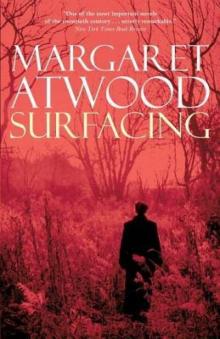 Surfacing
Surfacing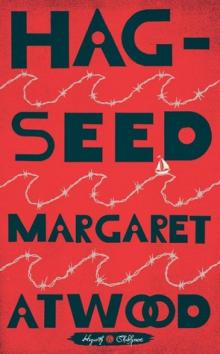 Hag-Seed
Hag-Seed Oryx and Crake
Oryx and Crake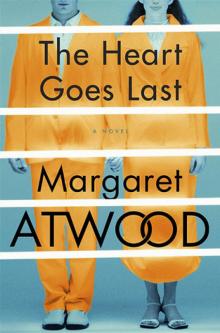 The Heart Goes Last
The Heart Goes Last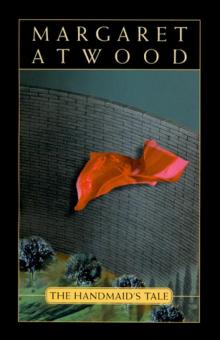 The Handmaid's Tale
The Handmaid's Tale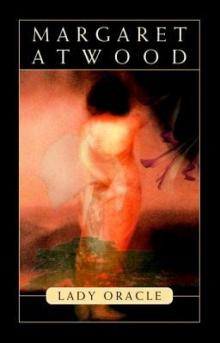 Lady Oracle
Lady Oracle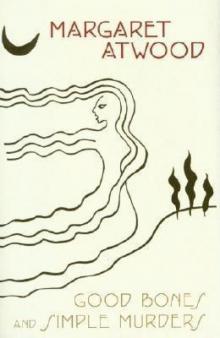 Good Bones and Simple Murders
Good Bones and Simple Murders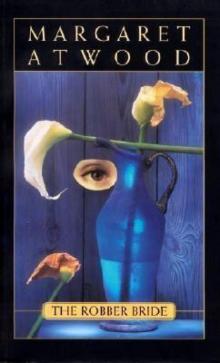 The Robber Bride
The Robber Bride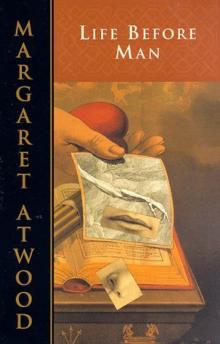 Life Before Man
Life Before Man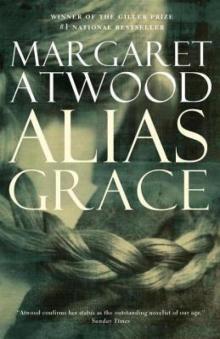 Alias Grace
Alias Grace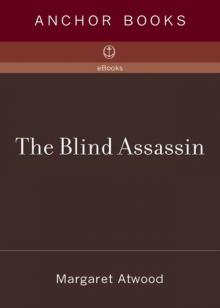 The Blind Assassin
The Blind Assassin Cat's Eye
Cat's Eye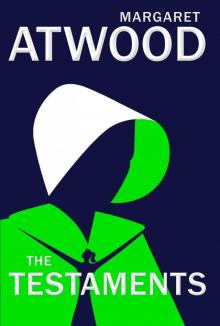 The Testaments
The Testaments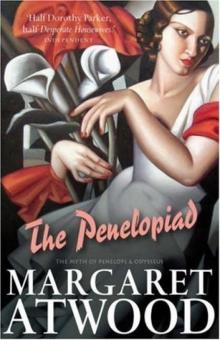 The Penelopiad
The Penelopiad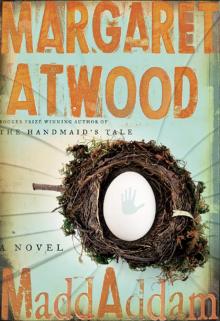 MaddAddam
MaddAddam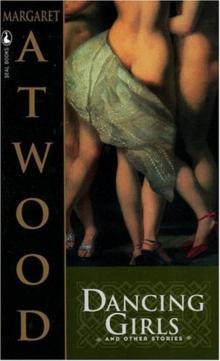 Dancing Girls & Other Stories
Dancing Girls & Other Stories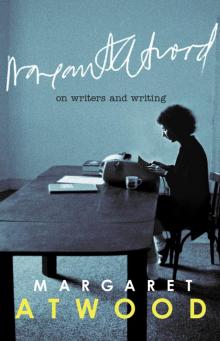 On Writers and Writing
On Writers and Writing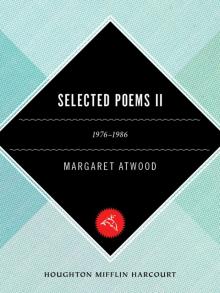 Selected Poems II (1976-1986)
Selected Poems II (1976-1986) Wilderness Tips
Wilderness Tips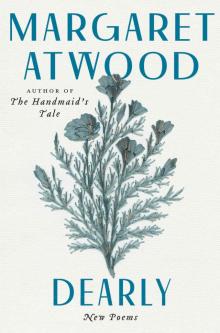 Dearly
Dearly The Tent
The Tent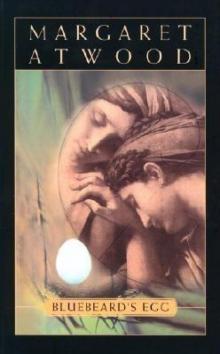 Bluebeard's Egg
Bluebeard's Egg The Edible Woman
The Edible Woman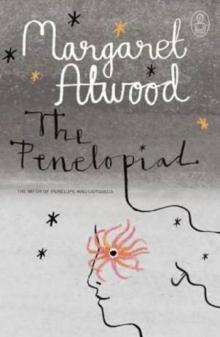 The Penelopiad: The Myth of Penelope and Odysseus
The Penelopiad: The Myth of Penelope and Odysseus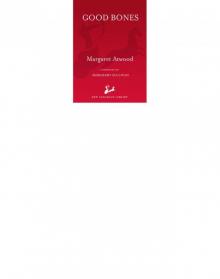 Good Bones
Good Bones I Dream of Zenia with the Bright Red Teeth
I Dream of Zenia with the Bright Red Teeth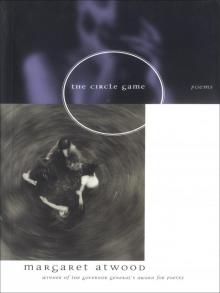 Circle Game
Circle Game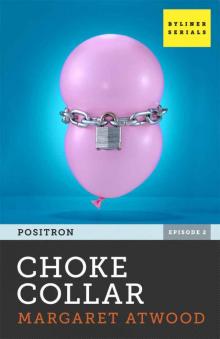 Choke Collar: Positron, Episode Two
Choke Collar: Positron, Episode Two Stone Mattress: Nine Tales
Stone Mattress: Nine Tales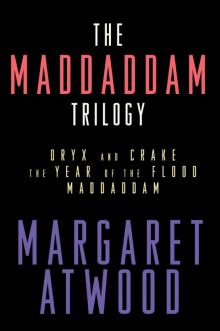 The MaddAddam Trilogy
The MaddAddam Trilogy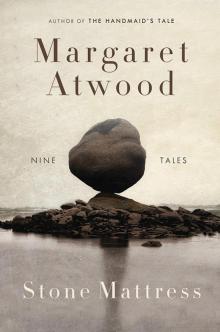 Stone Mattress
Stone Mattress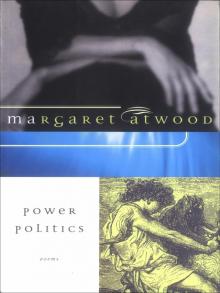 Power Politics
Power Politics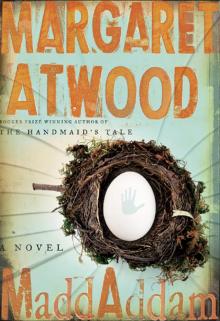 MaddAddam 03 - MaddAddam
MaddAddam 03 - MaddAddam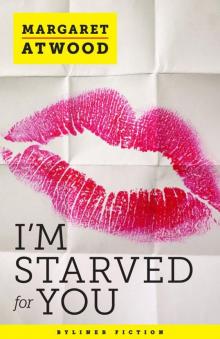 I’m Starved for You (Kindle Single)
I’m Starved for You (Kindle Single) Murder in the Dark
Murder in the Dark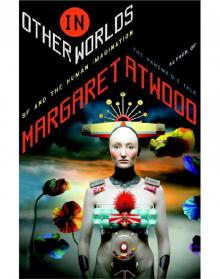 In Other Worlds
In Other Worlds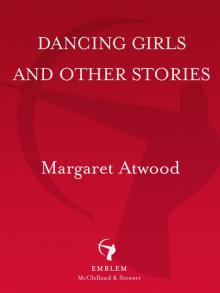 Dancing Girls
Dancing Girls Moral Disorder
Moral Disorder